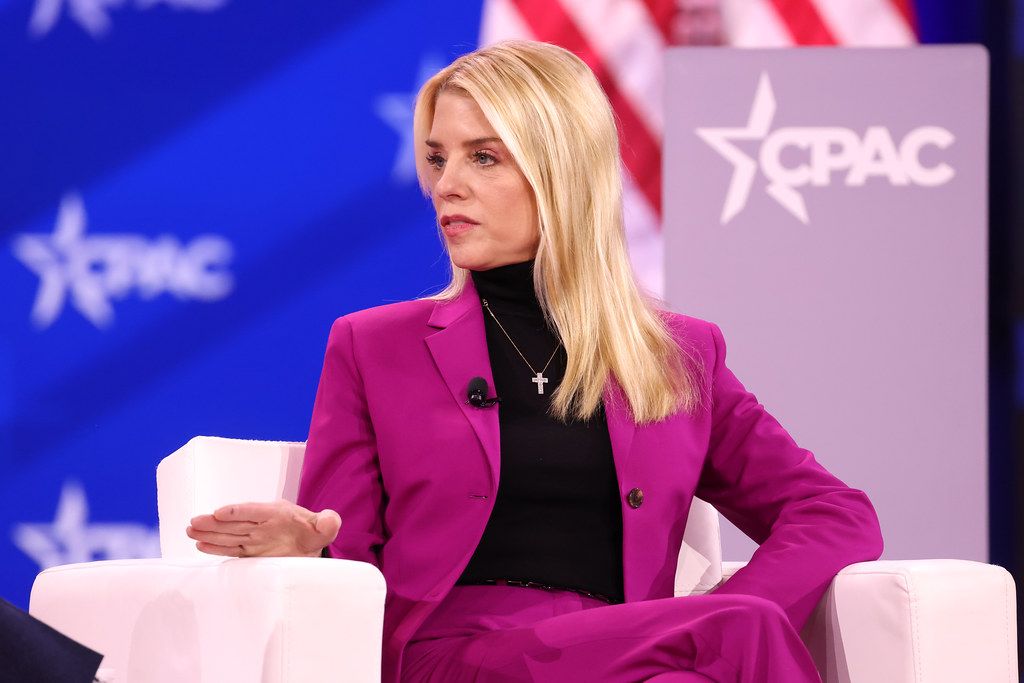
Attorney General Pam Bondi has directed federal prosecutors to launch a grand jury investigation into accusations that members of the Obama administration manufactured intelligence about Russia’s 2016 election interference. This significant development, initially reported by Fox News and later confirmed by CNN citing a source familiar with the matter, marks a notable escalation in the ongoing scrutiny of the 2016 election. The directive comes in response to a criminal referral from Director of National Intelligence Tulsi Gabbard, reigniting a contentious debate over the origins and conclusions of the Russia investigation.
Director of National Intelligence Tulsi Gabbard, appearing during a Senate Committee on Intelligence Hearing on March 25, 2025, in Washington, D.C., and later at a White House press conference, has been a central figure in this renewed push for investigation. In July, Gabbard declassified documents that she alleges undermine the Obama administration’s previous conclusion that Russia tried to help Donald Trump defeat Hillary Clinton. She has requested that the Justice Department investigate former President Barack Obama and top officials in his administration for an alleged conspiracy.
Following Gabbard’s referral, Attorney General Bondi announced the formation of a “strike force” within the Department of Justice. This specialized unit was created to assess the evidence released by Gabbard and to “investigate potential next legal steps which might stem from DNI Gabbard’s disclosures.” The Justice Department has, as of now, declined to offer comment on the ongoing investigation.
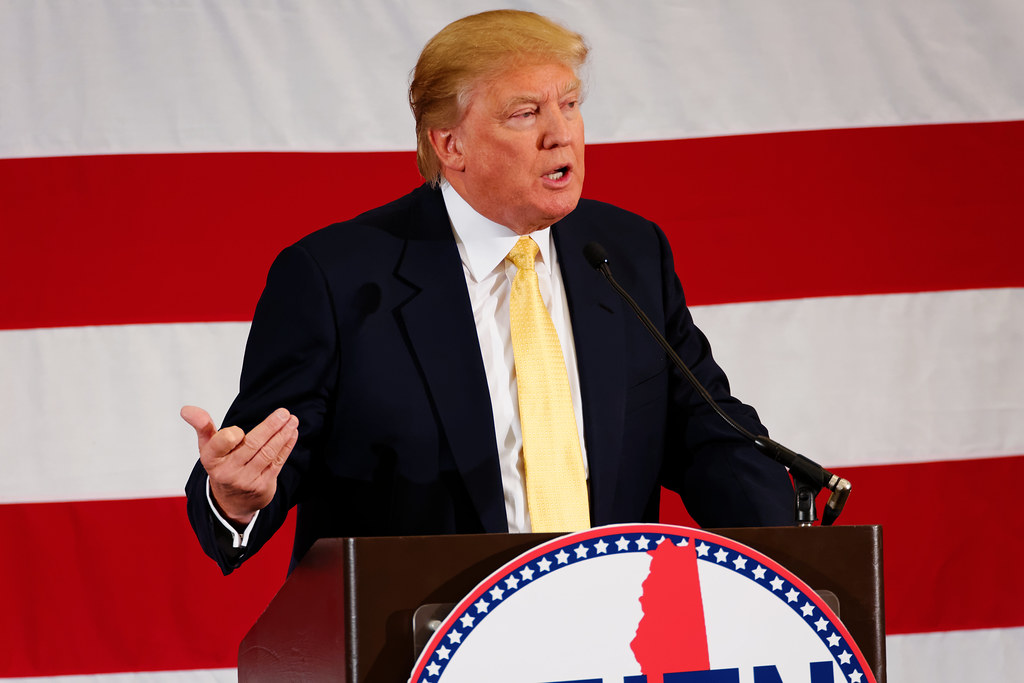
A grand jury probe empowers prosecutors with considerable investigative tools. Such a body can issue subpoenas as part of a criminal investigation, compelling testimony and the production of documents. Ultimately, a grand jury holds the authority to consider an indictment, should the Justice Department decide to pursue a criminal case based on the evidence presented.
The initiation of this grand jury investigation does not, however, mean that charges against former President Obama or members of his team are imminent. Instead, critics suggest the move could allow prosecutors to issue potentially embarrassing subpoenas and gather testimony, effectively launching what some describe as a “fishing expedition.” The exact charges under consideration, the individuals the grand jury will investigate, and its meeting location remain undisclosed, consistent with the secretive nature of grand jury proceedings.
President Donald Trump and his supporters have long asserted that intelligence and law enforcement officials sought to undermine his first term. They contend that these officials overstated Russia’s interference in the 2016 election and improperly investigated Trump’s aides for potential collusion with Moscow. The current administration views this grand jury as a means to address these long-standing grievances.
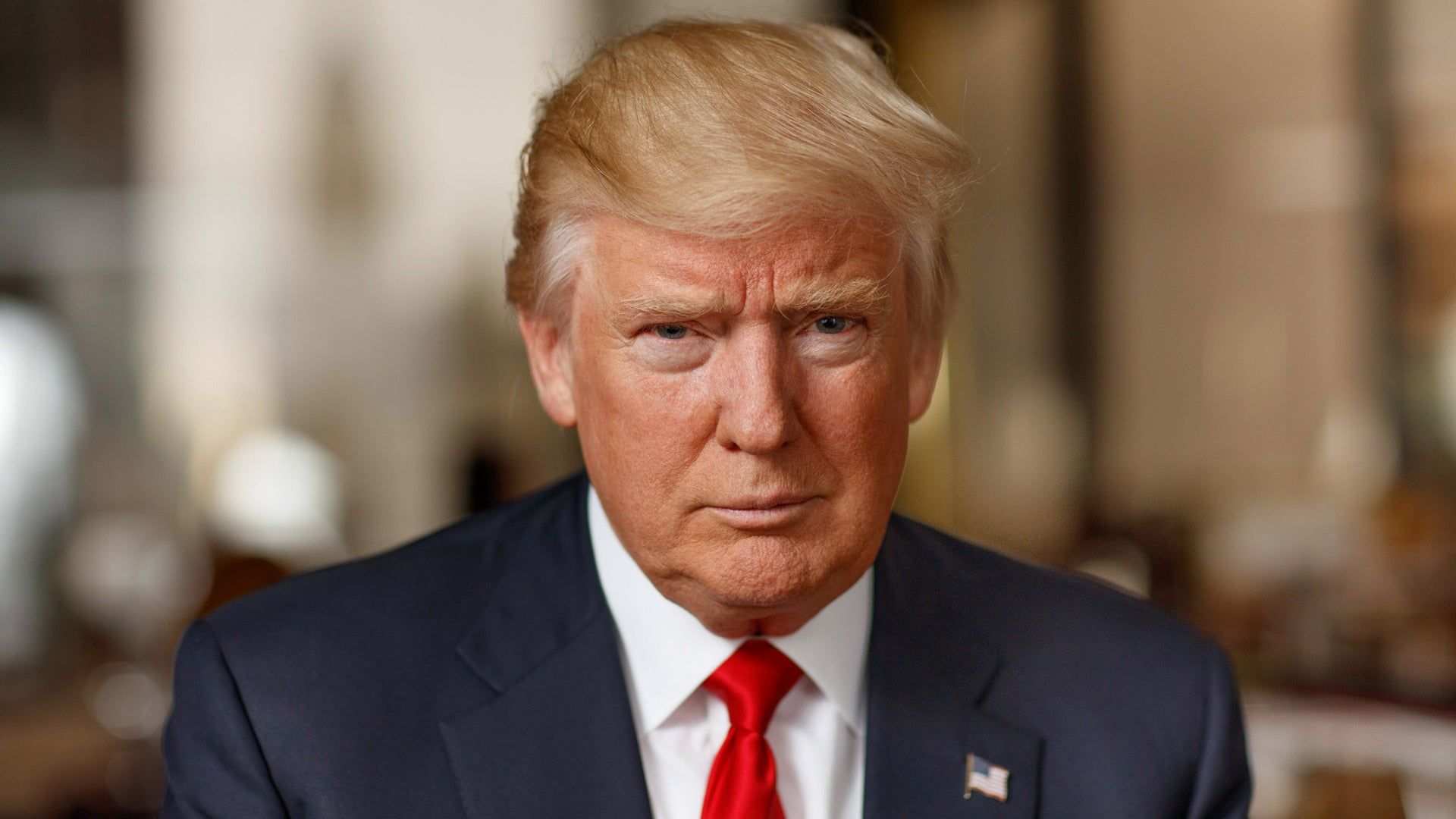
This latest action by Attorney General Bondi is perceived by some as another bid by Donald Trump to wage war against Barack Obama over the FBI investigation of his first presidential campaign. Trump, both as president and candidate, has not shied away from public criticisms, even depicting former President Barack Obama and other former administration officials in prison garb and calling for their imprisonment. Last month, he posted an artificial intelligence video of himself smiling as a fake depiction of Obama is arrested by FBI agents in the Oval Office and taken to jail.
The allegations central to this new probe stem from Gabbard’s assertions that the Democratic administration’s top intelligence chiefs, at the behest of the president and his team, changed intelligence conclusions to insinuate Russia’s support for Donald Trump. In an X post regarding her criminal referral, Gabbard stated, “Their goal was to usurp President Trump and subvert the will of the American people.” She emphasized, “No matter how powerful, every person involved in this conspiracy must be investigated and prosecuted to the fullest extent of the law. The integrity of our democratic republic depends on it. We are turning over all documents to the DOJ for criminal referral.”
FBI Director Kash Patel has also weighed in, asserting that recently declassified documents, specifically an appendix to a 2023 special counsel report, proved the “Clinton campaign plotted to frame President Trump.” Patel stated, “The American people deserve the full, unfiltered truth about the Russia collusion hoax and the political abuse of our justice system it exposed.” Attorney General Bondi, according to Fox News correspondent David Spunt, believes there is “‘clear cause for deep concern’ and a need for the next steps,” reportedly taking Gabbard’s referrals “very seriously.”
Despite these strong allegations, multiple past reviews and investigations have reached different conclusions. CNN has previously reported that the allegations from Director Gabbard misrepresent what the intelligence community actually concluded about Russia’s attempts to influence the 2016 election. While Gabbard insisted the Russian goal in 2016 was to sow distrust in American democracy and not to help Trump, the unsealed documents do not undercut or alter the US government’s core findings from 2017.
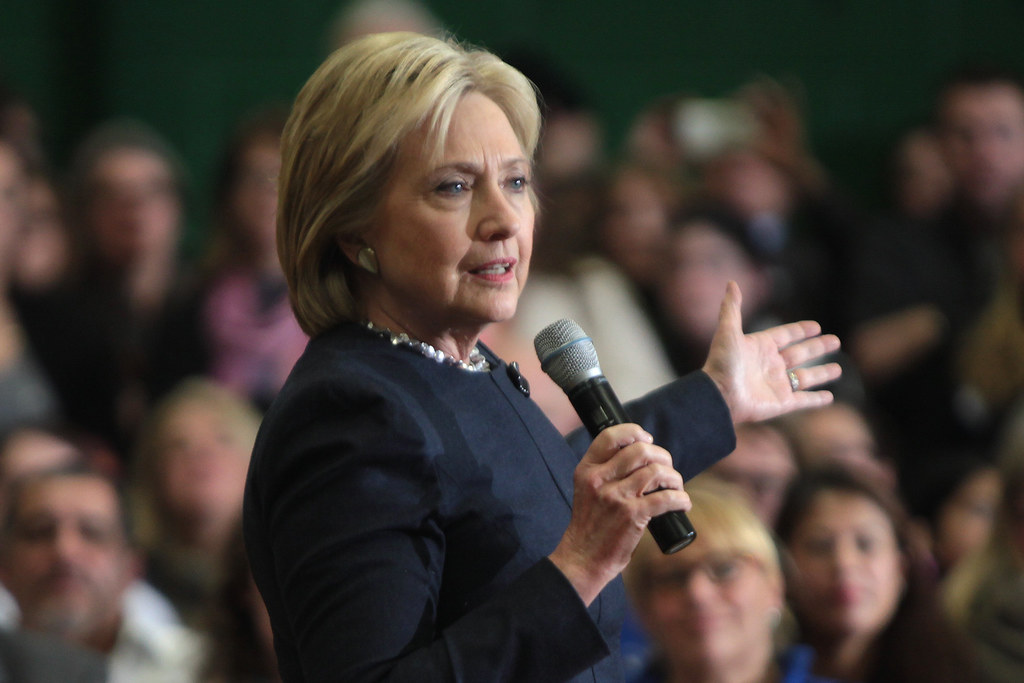
Those 2017 findings definitively stated that Russia launched a campaign of influence and hacking and specifically sought to help Hillary Clinton lose. Indeed, the intelligence assessments released by the ODNI at the time were backed up by verifiable facts: Russian-backed hackers targeted the Democratic National Committee’s servers and published information to sabotage Hillary Clinton’s campaign and sow discord, while performing no similar feats against Republicans or Trump’s campaign.
A bipartisan Senate Intelligence Committee review in 2020 further contradicted the idea of a conspiracy by Obama administration officials against Trump. This comprehensive review, signed off on by then-Sen. Marco Rubio, R-Fla., who was the acting chair of the committee at the time, found significant evidence of Russian interference in the 2016 election. Rubio, also Trump’s Secretary of State and acting national security adviser, made a clear statement regarding the committee’s findings.
Rubio stated, “We can say, without any hesitation, that the Committee found absolutely no evidence that then-candidate Donald Trump or his campaign colluded with the Russian government to meddle in the 2016 election.” However, he added a crucial caveat: “What the Committee did find, however, is very troubling. We found irrefutable evidence of Russian meddling. And we discovered deeply troubling actions taken by the Federal Bureau of Investigation, particularly their acceptance and willingness to rely on the ‘Steele Dossier’ without verifying its methodology or sourcing.”
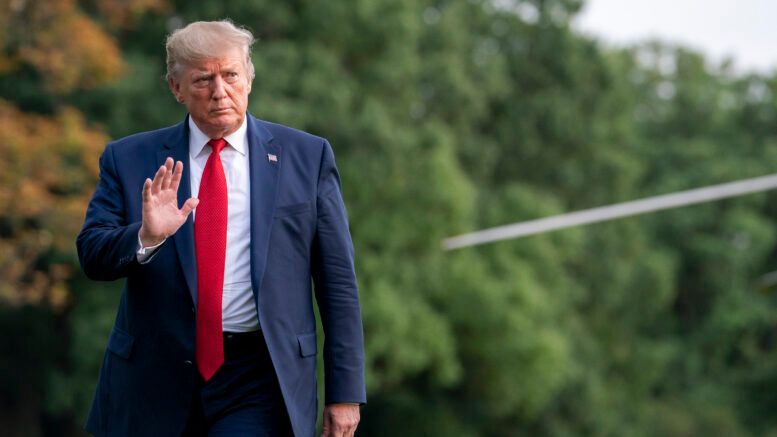
Furthermore, President Trump had previously ordered his own probe into the origins of the Russia investigation in 2019, which included the appointment of a special counsel at the Justice Department. This three-year investigation, led by special counsel John Durham, ultimately found no criminal conspiracy among Obama administration officials to fabricate intelligence about Russia’s actions in 2016. Durham also filed no charges against the intelligence officers who oversaw the 2017 assessment, which concluded that Russia had tried to skew the election outcome in Trump’s favor. This outcome disappointed some far-right activists.
The intelligence community’s analysis of the 2016 election and subsequent government investigations have notably failed to satisfy the far-right and far-left sides of the American political divide. For instance, a probe by special counsel Robert Mueller found that Russia intervened in 2016 to undercut Hillary Clinton, but it did not find evidence that the Trump team colluded with the Kremlin, a point often emphasized by voices on the left.
Legal and national security experts have been quick to condemn Attorney General Bondi’s latest directive. A former senior Justice Department official criticized the move as “a dangerous political stunt.” Echoing this sentiment, a former senior national security official, who requested anonymity, pointed out that multiple past reviews, including those conducted by Republicans, found no such crimes. This official asserted, “There’s no logical, rational basis for this.”
Perhaps one of the most significant legal concerns raised is the issue of the statute of limitations. For most of the potential federal crimes that could have been committed in 2016, the legal time limit for prosecution has long since expired. This makes launching a grand jury investigation into events for which there is likely no prosecutable crime highly irregular, according to legal observers.
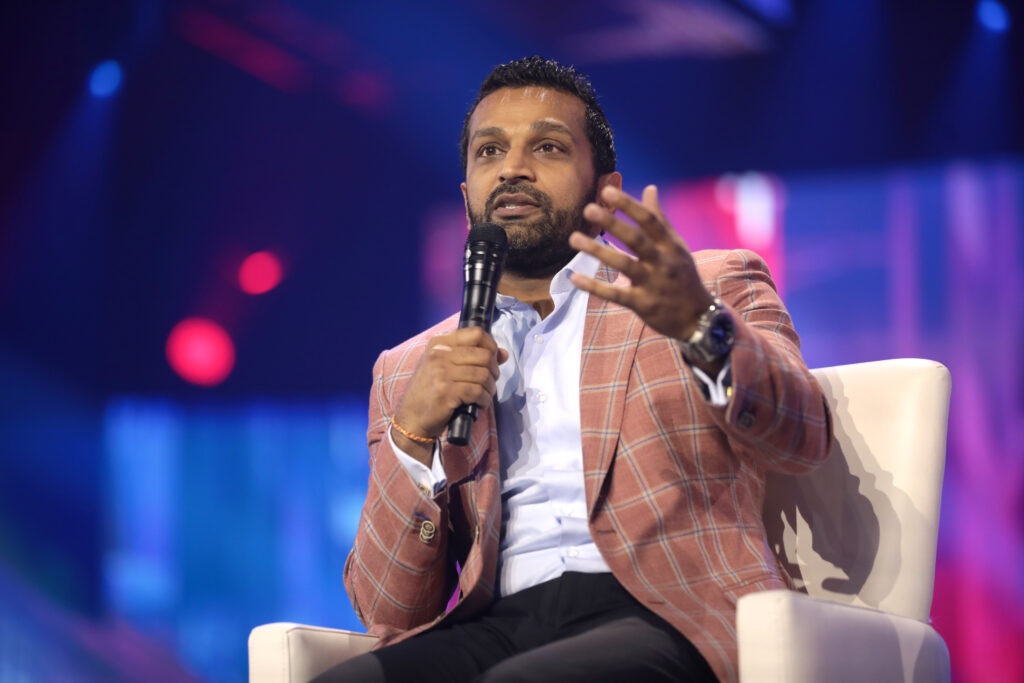
Such a circumstance suggests that the ultimate goal of the probe may not be to secure a lawful indictment. Instead, critics suggest that it could be used as a form of political punishment through the investigative process itself. This approach, they argue, aims to harass, generate damaging headlines, and force former officials to endure the financial and personal burden of a federal probe, even if it ultimately leads nowhere.
Democratic lawmakers have accused the Trump administration of seeking to divert public attention from the Jeffrey Epstein case, a matter for which conservative media and influencers have criticized Trump, Bondi, and FBI Director Kash Patel for their handling. Democrats contend that Director Gabbard’s narrative of a treasonous Obama-era plot is patently false and merely a diversionary tactic.
The implications of this grand jury investigation extend beyond the immediate political landscape. Some legal experts view Bondi’s decision as crossing a “constitutional Rubicon,” transforming the grand jury from its intended purpose as a “shield that protects citizens into a sword of political retribution.” This action, they argue, is not about accountability but rather the “weaponization of our justice system.”
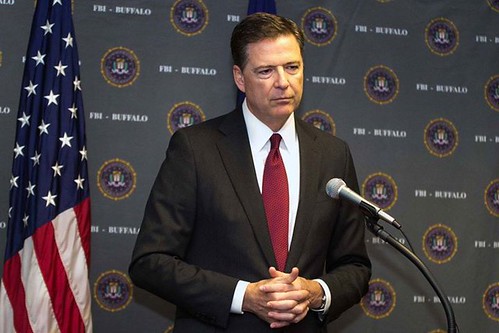
Launching a criminal investigation into the intelligence assessments of a prior administration, nearly a decade after the fact and following multiple previous inquiries, is described as a development with “dire consequences for the rule of law and the stability of the republic.” The grand jury, guaranteed by the Fifth Amendment, was designed to be an independent buffer between a potentially overzealous government and the individual citizen, checking the government’s power to prevent unfounded or politically motivated prosecutions.
Critics contend that this “sacred process is now being aimed at the political enemies of the current administration.” The decision to proceed despite prior findings, including the Durham probe’s conclusion of no criminal conspiracy, is deeply troubling to these observers. They highlight that the targets of scrutiny are the President’s most high-profile and long-standing political antagonists: former FBI Director James Comey, who has denied wrongdoing, and former intelligence chiefs John Brennan and James Clapper.
This suggests that the effort is not a new search for truth but “appears to be a politically motivated effort to achieve a predetermined outcome.” When the Department of Justice, whose role is to pursue impartial justice, appears to be using its most powerful investigative tool to settle old scores on behalf of the President, it risks undermining the very foundation of public trust in the legal system.
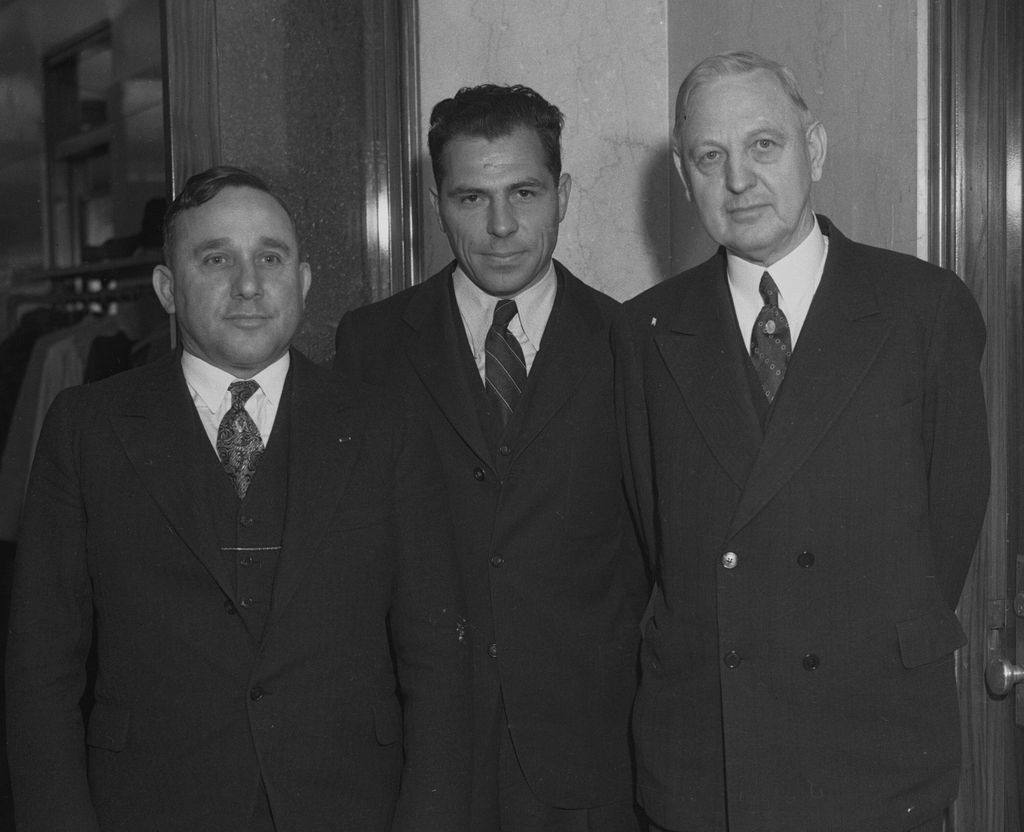
The current administration’s plans for a grand jury investigation are seen as the latest in a series of actions apparently designed to rewrite the history of the 2016 election. Democratic lawmakers and former senior officials argue that Trump and his deputies have improperly used the tools of government authority to try to reverse an eight-year-old assessment that Russia waged an information war to boost Trump’s candidacy.
In this environment, where the past continually re-enters the present with new legal challenges, the nation finds itself at a critical juncture. The tradition of refraining from prosecuting political predecessors is considered a vital, unwritten guardrail of American democracy. By ordering this investigation, the administration is seen by some as tearing down that guardrail, potentially inflicting irreparable damage to the public’s faith in the impartial rule of law.
The unfolding events surrounding Attorney General Pam Bondi’s directive underscore the profound tensions within the American political and legal landscape. This grand jury probe, initiated amidst a flurry of accusations and counter-accusations, is more than a legal proceeding; it is a profound test of the nation’s commitment to impartial justice and the enduring principles that underpin its democratic institutions. The coming months will undoubtedly reveal the trajectory of this unprecedented investigation, setting potential precedents for the future of political accountability and the rule of law in the United States.



